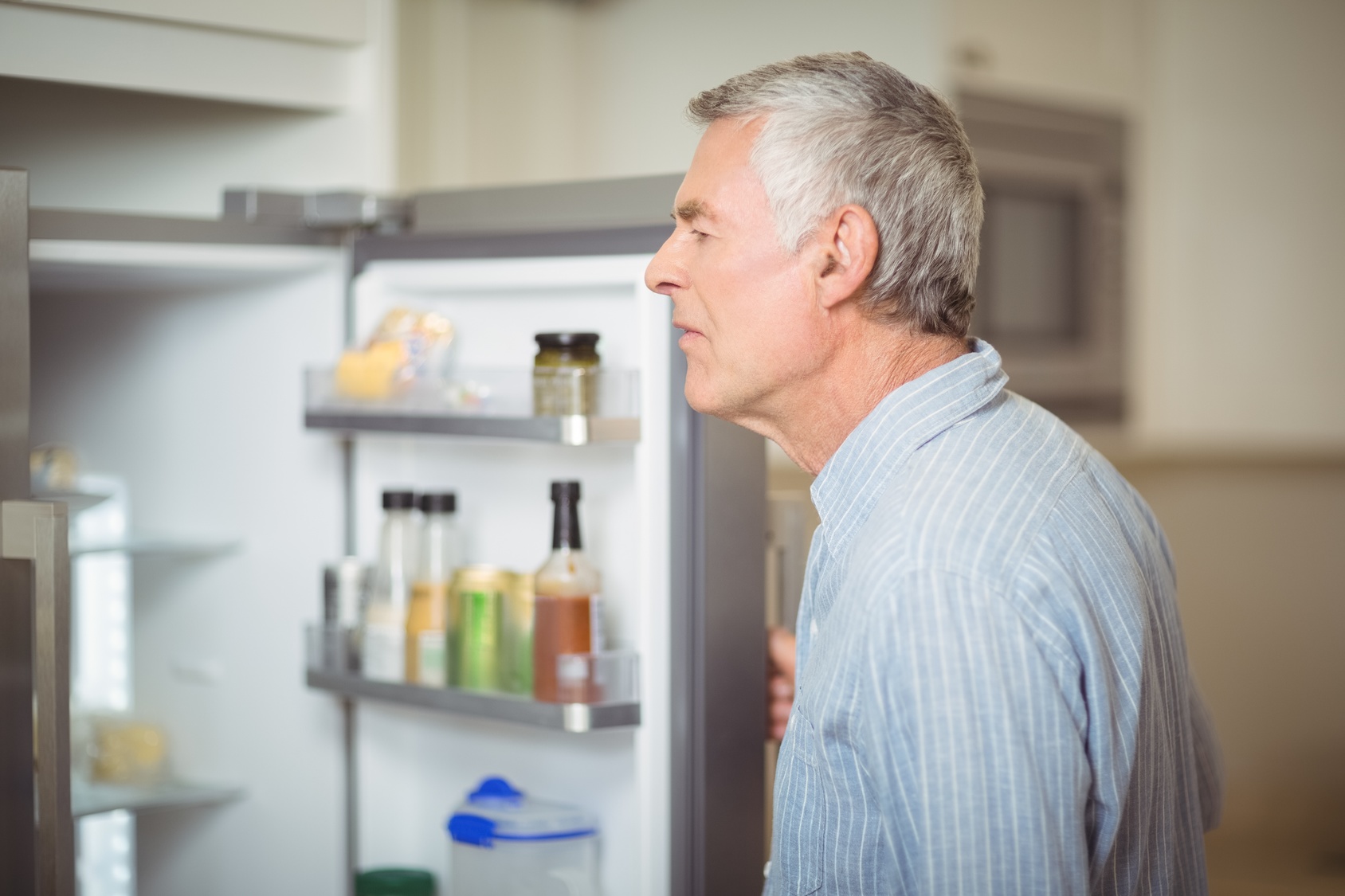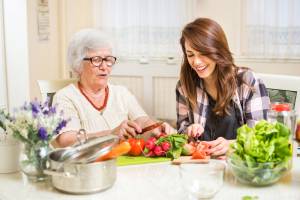 Malnutrition is more than just not eating enough. It’s not getting enough nutrients from the food you consume. So, while you may eat enough, you can suffer from malnutrition if the foods are providing you with a sufficient amount of vitamins, minerals, proteins, carbohydrates, and fats. Without proper nutrients, you may not have enough energy to get through the day, or you may not have the necessary nutrients for bodily functions or to help your body repair itself.
Malnutrition is more than just not eating enough. It’s not getting enough nutrients from the food you consume. So, while you may eat enough, you can suffer from malnutrition if the foods are providing you with a sufficient amount of vitamins, minerals, proteins, carbohydrates, and fats. Without proper nutrients, you may not have enough energy to get through the day, or you may not have the necessary nutrients for bodily functions or to help your body repair itself.
For elderly individuals, malnutrition is especially concerning, and it’s even more so for seniors who have dementia or a chronic disease. When elderly individuals are malnourished, they suffer from various health problems. Among the issues seniors may face are unintended weight loss, muscle weakness, fatigue, a weakened immune system, memory problems, and more. Seniors can have trouble going about their everyday lives, become ill, or even have accidents that result in injury.
Seniors, on their own, may struggle to monitor their own diets and eating habits. This is one area where senior home care services can help. Without help or encouragement from others, elderly individuals might not eat enough or eat properly. Knowing this, it is essential that you make sure your elderly loved ones are eating proper nutritious meals on a regular basis to ensure they maintain good health and well-being. Use the following information to help prevent malnutrition in seniors.
1. Encourage a Healthier Diet
 When seniors eat healthy meals on a regular basis, they will get all of their necessary nutrients. Encourage elderly individuals to consume vegetables, lean meats, fruits, whole grains, and other foods filled with vitamins, minerals, and other nutrients. You can add some flair to meals and make them more appealing to eat by adding different herbs, seasonings, and spices, but limit the amount of salt, bad fats, and artificial sugars in meals. Instead use foods with good fats and oils, such as fish, and natural sugars, such as apples.
When seniors eat healthy meals on a regular basis, they will get all of their necessary nutrients. Encourage elderly individuals to consume vegetables, lean meats, fruits, whole grains, and other foods filled with vitamins, minerals, and other nutrients. You can add some flair to meals and make them more appealing to eat by adding different herbs, seasonings, and spices, but limit the amount of salt, bad fats, and artificial sugars in meals. Instead use foods with good fats and oils, such as fish, and natural sugars, such as apples.
2. Implement Nutritious Snacks
Having snacks in between meals is a great option to get elderly individuals more nutrients. Whether it’s some yogurt, a smoothie, or a piece of fruit, a snack can provide seniors with an extra boost of energy during the day.
3. Consider Supplements
Nutritional supplements are an easy way to ensure that elderly individuals get nutrients that they aren’t otherwise getting from the foods they eat. However, you should speak with the senior’s doctor prior to starting any supplements so that you know which supplement is best suited for them.
4. Encourage Regular Exercise
When you exercise on a daily basis, it will strengthen your muscles and bones and stimulate your appetite. You don’t even need to engage in vigorous exercise. Even light exercise like walking is beneficial for appetite stimulation.
5. Turn Eating into a Social Event
 If mealtime is turned into a social event, then it can be more enjoyable and encourage people to partake in it. That said, invite your elderly loved one over for dinner with friends and family or have family and friends join them for meals at their home. You can even go out to a restaurant with family and have your elderly relative join, where they will likely be able to get a senior discount of some sort.
If mealtime is turned into a social event, then it can be more enjoyable and encourage people to partake in it. That said, invite your elderly loved one over for dinner with friends and family or have family and friends join them for meals at their home. You can even go out to a restaurant with family and have your elderly relative join, where they will likely be able to get a senior discount of some sort.
6. Provide Money-Saving Food Tips
If seniors do their own grocery shopping, then they may gravitate away from healthier food choices and choose whatever food and products are cheaper so that they can save some money. But it’s important that they choose healthy products, which don’t always have to be expensive. Encourage them to look for coupons and to browse weekly advertisements for deals.
7.Hire Home Care Help
Some elderly individuals may have trouble cooking for themselves, are unwilling to cook and shop for groceries, or cannot prepare their own food without putting themselves in danger. If this is the case, then you can also consider seeking help from a professional caregiver from a senior care service.
Work with Assisting Hands Home Care
Assisting Hands Home Care provides senior care services to elderly individuals. Within these home care services, a caregiver is assigned to your elderly loved one to assist them at home with whatever they may need help with, and this includes meal preparation. We understand that senior malnutrition is an issue in the United States, and we want to do what we can to help combat it, which is why we can include meal preparation in our elder care services.
Our caregivers will take responsibility for preparing meals by cooking the food, serving the meal, helping with feeding if necessary, and cleaning up afterwards. When we prepare meals, we make sure the food is healthy and nutritious, ensuring that your elderly loved ones get the nutrients they need for energy and to maintain their health and well-being. If desired, our caregivers can also take care of grocery shopping.
That said, consider seeking help from the caregivers at Assisting Hands Home Care in Richardson, Texas if you need help preventing your senior relative from becoming malnourished.




